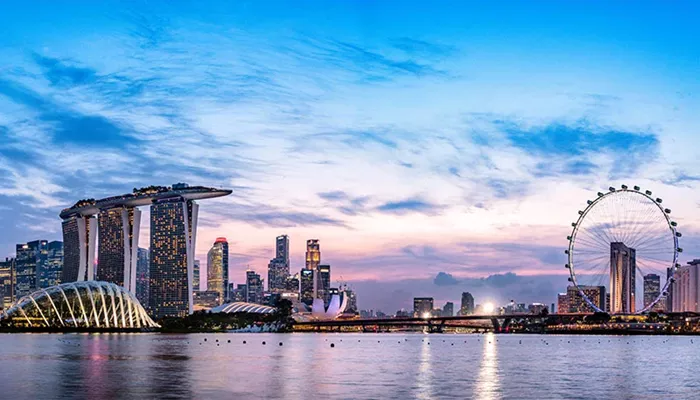Overstaying your visa in Singapore can lead to serious legal consequences. The fine for overstaying, as well as potential imprisonment and other repercussions, can have significant implications for your future travels and your ability to enter Singapore again. This article aims to provide a comprehensive overview of the fines and consequences associated with overstaying in Singapore.
What Is Overstaying?
Overstaying occurs when a foreign national remains in Singapore after their visa or entry permit has expired. This can happen for various reasons, including:
- Lack of awareness about visa expiration dates
- Inability to leave due to financial constraints or emergencies
- Delays in obtaining a new visa or extension
- Personal circumstances that prevent timely departure
Legal Framework Governing Overstaying
In Singapore, the Immigration Act regulates entry and stay in the country. The Act outlines the rules regarding visas, extensions, and the penalties for overstaying. It is essential to understand these regulations to avoid unintentional violations.
Fines for Overstaying
1. General Fines
The fine for overstaying in Singapore varies depending on the duration of the overstay:
- Up to 90 days: If you overstay for less than 90 days, the fine is typically SGD 40 per day of overstay.
- More than 90 days: If you overstay for more than 90 days, the fine can increase to SGD 80 per day.
The maximum fine for overstaying can reach SGD 10,000. The Ministry of Manpower (MOM) and the Immigration and Checkpoints Authority (ICA) are responsible for enforcing these fines.
2. Administrative Fines
In addition to the daily fines, individuals may also face administrative fines. These are separate from the daily penalties and can vary depending on the case’s specifics. The authorities may consider the circumstances of the overstay before imposing additional fines.
Consequences Beyond Fines
1. Imprisonment
In severe cases of overstaying, particularly for individuals who overstay for an extended period or have committed other immigration offenses, imprisonment may be imposed. The Immigration Act stipulates that overstaying can lead to a maximum sentence of six months for a first offense. For repeat offenders, the penalties may increase significantly.
2. Deportation
Individuals caught overstaying may also face deportation. The authorities may issue a removal order, requiring the individual to leave Singapore immediately. Deportation can lead to a ban on re-entry, which could last for several years, depending on the severity of the offense.
Future Implications of Overstaying
Overstaying in Singapore can have long-term consequences for your immigration status and future travels. Some potential implications include:
1. Entry Bans
If you overstay, you may face an entry ban, which means you will not be allowed to enter Singapore for a specified period. The length of the ban can vary based on the overstay’s duration and any previous immigration violations.
2. Difficulty Obtaining Future Visas
An overstay can complicate future visa applications, not only for Singapore but also for other countries. Immigration authorities often share information about visa violations, which can affect your credibility as an applicant.
3. Record of Violation
Overstaying may result in a permanent record of immigration violations. This record can impact your ability to travel, work, or study in other countries.
Steps to Take if You Have Overstayed
If you realize that you have overstayed your visa, it is crucial to take action promptly. Here are some steps to consider:
1. Seek Legal Advice
Consulting with an immigration lawyer can help you understand your options and the potential consequences of your situation. A lawyer can guide you on how to proceed and help you navigate the legal process.
2. Contact the Authorities
Contact the ICA or MOM as soon as possible to explain your situation. Being proactive can demonstrate your willingness to comply with immigration laws, which may mitigate the consequences you face.
3. Prepare for Possible Penalties
Be prepared to pay any fines that may be imposed. Having the necessary funds available can help expedite the resolution of your case.
4. Apply for a Visa Extension
In some cases, it may be possible to apply for a visa extension or a new visa. However, this process can be complicated for individuals who have overstayed, so legal assistance is recommended.
see also: How Long It Takes to Get a Work Permit in Singapore?
Preventing Overstay
To avoid overstaying your visa in Singapore, consider the following tips:
1. Keep Track of Your Visa Expiration Date
Maintain a calendar or reminder system to alert you of your visa’s expiration date well in advance. This can help you plan your departure or apply for an extension.
2. Understand Visa Conditions
Familiarize yourself with the terms of your visa, including any restrictions on your stay, employment, or activities. Understanding these conditions can help prevent unintentional violations.
3. Apply for Extensions in Advance
If you plan to stay longer than your visa allows, apply for an extension as early as possible. The authorities recommend submitting your application at least a month before your visa expires.
4. Stay Informed About Immigration Policies
Regularly check for updates on Singapore’s immigration policies. Changes in regulations can affect your visa status and requirements.
Conclusion
Overstaying in Singapore can lead to significant fines and other serious consequences. It is essential to understand the legal framework governing immigration in Singapore and take proactive steps to prevent overstaying. If you find yourself in a situation where you have overstayed your visa, seeking legal advice and contacting the relevant authorities promptly can help mitigate the consequences. By staying informed and prepared, you can avoid the complications associated with overstaying and ensure a smooth travel experience.


